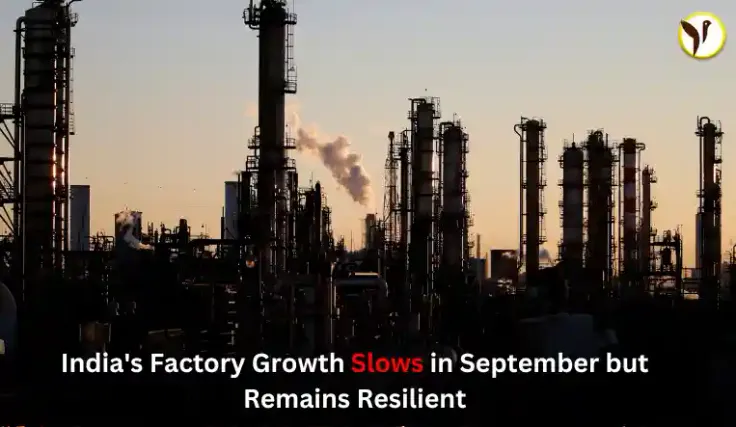In a recent private survey, India's factory activity showed a slowdown in September, marking its slowest expansion in five months. Nevertheless, the industry stayed strong thanks to high demand and strong business confidence, even as inflationary pressures increased.
According to the Manufacturing Purchasing Managers' Index (PMI) compiled by S&P Global, the index dropped to 57.5 last month, down from August's 58.6 reading, falling slightly short of the Reuters poll projection of 58.1. Nonetheless, this marks the 27th consecutive month that the index has remained above the crucial 50-mark, indicating expansion rather than contraction.
Economists attribute this mild slowdown to a softer increase in new orders, which consequently tempered production growth. Pollyanna De Lima, the economics associate director at S&P Global Market Intelligence, noted, "India's manufacturing industry showed mild signs of a slowdown in September, primarily due to a softer increase in new orders which tempered production growth." However, despite this, both demand and output witnessed substantial increases, with companies reporting gains in new business from clients across Asia, Europe, North America, and the Middle East.
Despite the easing of sub-indexes from August, both new orders and output surged, driven by robust domestic and foreign demand. International demand expanded for the 18th consecutive month, which, in turn, boosted business confidence to its highest level this year. The positive sentiment prompted companies to increase their workforce, with the employment index reaching its highest level since November, sustaining a period of six consecutive months of expansion, albeit at a moderate rate.
While input costs rose mildly in September, at the weakest pace in over three years, participants observed lower prices for commodities like aluminum and oil. However, strong demand compelled companies to raise their selling prices, driving up the output charges index. This increase was attributed to higher labor costs, and it exceeded its long-run average, signaling growing concerns about inflation.
Economists suggest that the robust increase in output charges, despite a retreat in cost pressures, could potentially limit sales in the upcoming months. Inflation in India eased slightly in August but remained above the Reserve Bank of India's (RBI) target range of 2%-6%. Despite this, it is not anticipated that the RBI will raise its key repo rate again this year. Instead, a Reuters poll predicts a 25 basis point rate cut to 6.25% in the second quarter of 2024.
Also read: Jamie Dimon, JP Morgan CEO, Talks about AI's Impact on Workweek, predicting a 3.5-Day Week for Employees







